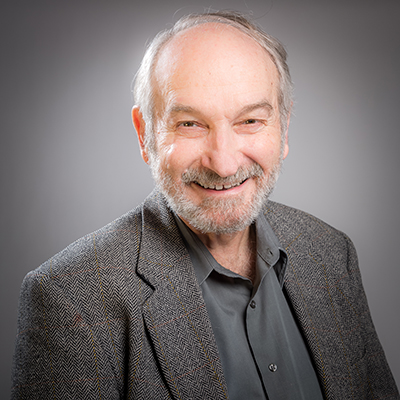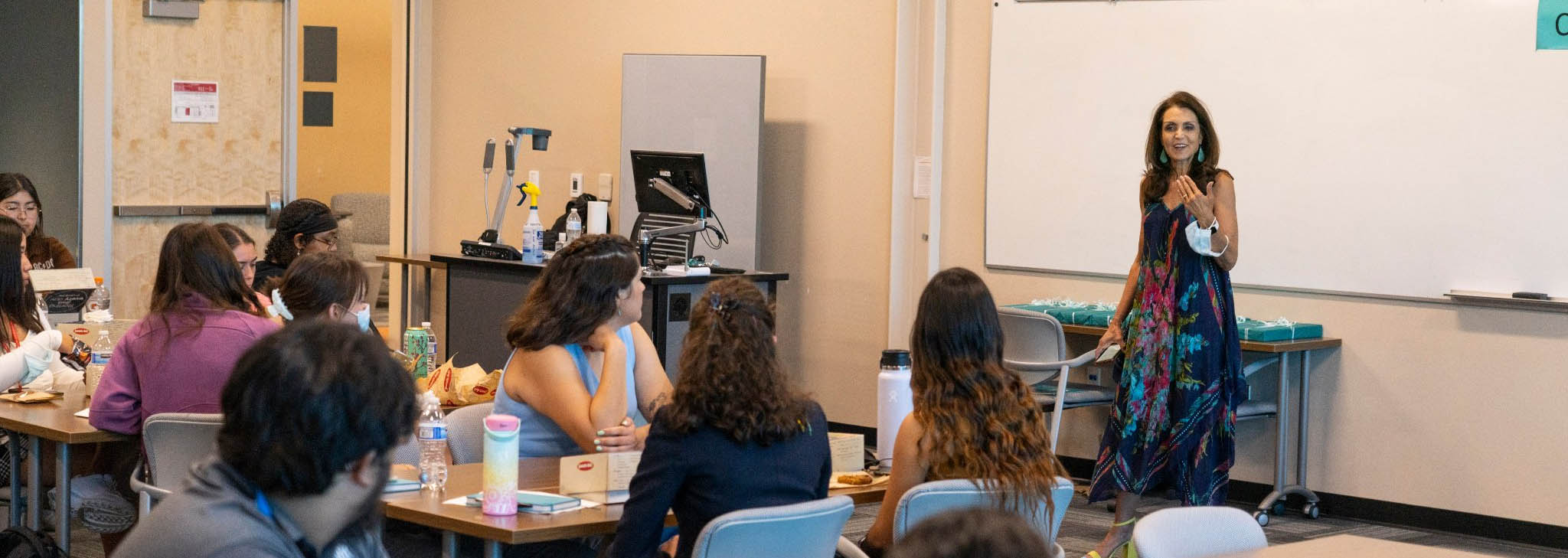Members of The University of New Mexico community will soon be able to complete a new cross-campus certificate program focused on identifying and addressing the social determinants of health.
The United States spends more on health care than almost any other country, yet underperforms on many key health indicators, including life expectancy, chronic heart disease and maternal and infant mortality rates.
“It’s well known by providers but has previously gone unaddressed and given few resources and support to tackle the discrepancy,” said Arthur Kaufman, MD, Vice President for Community Health at the UNM Health Sciences. “We have lots of health problems, but the origin of those health problems is often based on social determinants.”
In November 2022, Kaufman and other UNM Health Sciences leaders secured $90,000 in funding from UnitedHealthcare of New Mexico for the design, creation and implementation of a modular curriculum that will offer training in the social determinants of health via a certificate program.
UnitedHealthcare has donated another $90,000 toward the growth of the College of Population Health for students, faculty and supplies, as well as implementing best practices to successfully address social determinants of health for New Mexicans.
Participants of the certificate will gain understanding behavioral, psychological and structural factors that contribute to health inequities. And because the certificate program will be tailored differently under different UNM colleges, no matter which profession the participant is in or pursuing, they will ask and answer the question: What is your role and how can you improve health equity?
Studies show that lifestyle and environmental factors that encompass the social determinants of health impact 80% of health outcomes, according to UnitedHealthcare’s Our Vision for Empowering Health.
Social determinants of health are the conditions in the places where people live, learn, work and play that affect a wide range of health risks and outcomes. These include a lack of access to adequate food, proper housing, a safe environment, transportation, education, the internet, social support, employment and childcare.
In New Mexico, where child poverty and food insecurity rates remain among the highest in the nation, the persistent inequities are well recognized.
Identifying these barriers to wellness is the first step in enabling health care professionals and health plans to improve patients’ access to care by providing a better understanding of the scope of factors influencing physical and mental well-being.

If you spend all of your time saving people from drowning downstream, wouldn’t it be better to prevent people from falling into the river upstream in the first place?
“All of those factors have a huge impact – much, much larger than the impact of the health care delivery system,” Kaufman said. “If you spend all of your time saving people from drowning downstream, wouldn’t it be better to prevent people from falling into the river upstream in the first place?”
The University of New Mexico is breaking the mold and fostering innovations aimed to integrate social determinants of health into its health care education and health care delivery system.
A look at the numbers
According to the Health Resources & Services Administration, 20.5 million people were living in households with incomes two times below the U.S. poverty line. New Mexico ranks the highest poverty rate among older adults in the nation, at nearly 14%.
Some 18.2 million U.S. households lack access to stable housing. More than 30% of New Mexico residents over the age of 62 experience severe housing challenges, including lack of plumbing and kitchen facilities and overcrowding or cost burdens. American Indians households who experience housing issues are disproportionately affected, at more than 29%.
More than 40 million people in the U.S. live in food-insecure households. In New Mexico, nearly 21% of children experienced food insecurity in 2021. Studies show food insecurity has broad effects on overall health, especially for children, older adults and people with chronic health conditions.
Kaufman said the COVID-19 pandemic exposed and amplified a further widening of long-standing economic, racial and gender divides.
“They’ve always been there, but what became grossly apparent is there’s a massive inequality in our society,” Kaufman said. “Suddenly, we see that disparity has a huge impact on who survives and who thrives in a society when it’s faced with a pandemic.”
The Certificate
UNM Health Sciences leaders are aiming to launch the Social Determinants of Health Certificate this fall.
The certificate will act as a three- to five-hour supplement to existing curricula across the UNM’s various colleges. Five modules will be included in the certificate, including: Setting, Social Determinants of Health, Applying Social Determinants in Practice, Case Examples from Different Fields and Implementation Strategies.
“It’s something that you’ll be able to do at your leisure as a student, a resident, a nurse, a pharmacist, a faculty – anyone can take it,” Kaufman said. “And it will enhance what courses and curriculums are already doing.”
Andrew Peterson, UnitedHealthcare of New Mexico’s CEO, said that when he began speaking with UNM Health Sciences leaders about potentially creating the Social Determinants of Health Certificate, “It sounded right up our alley.”
“We’re hoping that all people in the health sciences have a good grounding in the social determinants of health, but also to keep people’s interest up in the social determinants of health and how they influence the overall health outcomes,” Peterson said.
He added that he hopes the certificate will encourage people seeking health sciences degrees to stay in New Mexico after graduating.
“We’re thinking of the overall health care worker shortage in New Mexico and how we can get people into that space where they can work in their local community or somewhere else in the state,” Peterson said.
The certificate will be the first of its kind that meets UNM President Garnett S. Stokes’ goal of “One University” by developing a brief learning experience shared across the campus through inter-disciplinary collaboration and partnership.
The health sciences are not the only fields with expertise in social determinants, Kaufman said. The contributions of law, architecture and planning, business, education, arts and sciences and engineering also offer substantial expertise and opportunities for intervention and application.
“The real experts in housing are in architecture and planning. The real experts on transportation are in civil engineering. The real experts on all of the legal issues that entangle us with social determinants of health are in the law school,” he said. “We’re wanting everyone to build it together, so everyone can bring their expertise as we fashion this curriculum.”
UNM Health Sciences leaders are developing the core certificate content now, as well as meeting with and receiving input from key stakeholders. In the coming months, a pilot test will be completed with input and feedback from stakeholders and pilot learners.
From April to October, the curriculum will be refined and a plan for dissemination will be developed.
